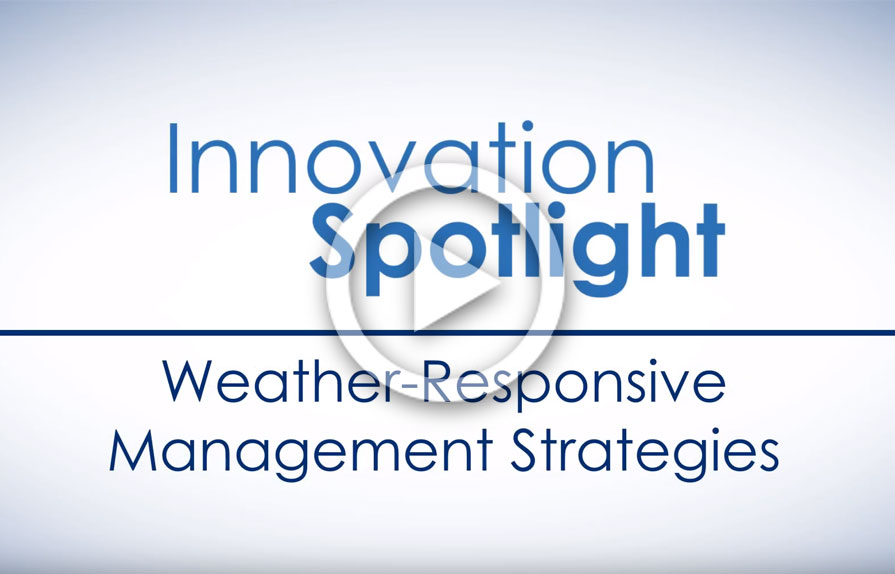February 7, 2019
Innovation of the Month:
Weather-Responsive Management Strategies
As wintry weather challenges drivers and transportation agencies, the Every Day Counts round five (EDC-5) innovation of the month for February is weather-responsive management strategies that increase the effectiveness of traffic operations and highway maintenance during adverse road weather conditions.
Inclement weather is a factor in one out of five crashes on U.S. roads. Each year, nearly 6,000 people are killed and more than 445,000 are injured in weather-related crashes. Bad weather also contributes to traffic delays, increased freight costs, and environmental impacts from road salt use.
In EDC-5, the Federal Highway Administration is encouraging transportation agencies to adopt weather-responsive approaches that apply to all weather conditions, not just winter weather:
- Traffic management strategies such as motorist advisory systems, signal timing, and variable speed limits help agencies improve safety and keep traffic and freight moving.
- Maintenance management strategies such as plowing, debris removal, and water drainage maintenance also enhance safety and mobility, while anti-icing and deicing techniques reduce the cost and negative environmental effects of chemical use.
View the Innovation Spotlight video and introductory webinar on weather-responsive management strategies.
Visit the FHWA Road Weather Management web page for best practices, publications, and training.
Contact Roemer Alfelor or Gabriel Guevara of the FHWA Office of Operations for information and technical assistance.
Florida Local Agencies Benefit from Automated Traffic Signal Performance Measures
The city of Tallahassee, FL, expanded implementation of automated traffic signal performance measures (ATSPMs) from an initial 22-signal installation to 40 signals. ATSPMs produced benefits such as a reduction in peak-hour delays at a congested intersection and the discovery and correction of a signal controller firmware bug. Seminole County implemented ATSPMs for its 383 signals in less than 2 years. The county reports that ATSPMs reduced the need to conduct traffic counts, making funding originally budgeted for data collection available for other initiatives. For ATSPM information, contact Eddie Curtis of the FHWA Resource Center.
Oklahoma Deploys Countermeasures to Improve Pedestrian Safety
State Transportation Innovation Council Incentive funds helped the Oklahoma STIC develop and implement an outreach strategy to accelerate deployment of countermeasures in the safe transportation for every pedestrian (STEP) initiative. The effort included developing an Action Plan for Implementing Pedestrian Crossing Countermeasures at Uncontrolled Locations to provide guidance for the Oklahoma Department of Transportation (ODOT) and communities, and creating a website on Oklahoma's STEP program. A video highlights how Oklahoma communities benefit from deploying STEP countermeasures such as road diets and crosswalk visibility enhancements. For information, contact Kyle Stevens of ODOT.
About EDC
Every Day Counts, a State-based program of the Federal Highway Administration’s Center for Accelerating Innovation, works with State, local, and private sector partners to encourage the adoption of proven technologies and innovations to shorten and enhance project delivery.



